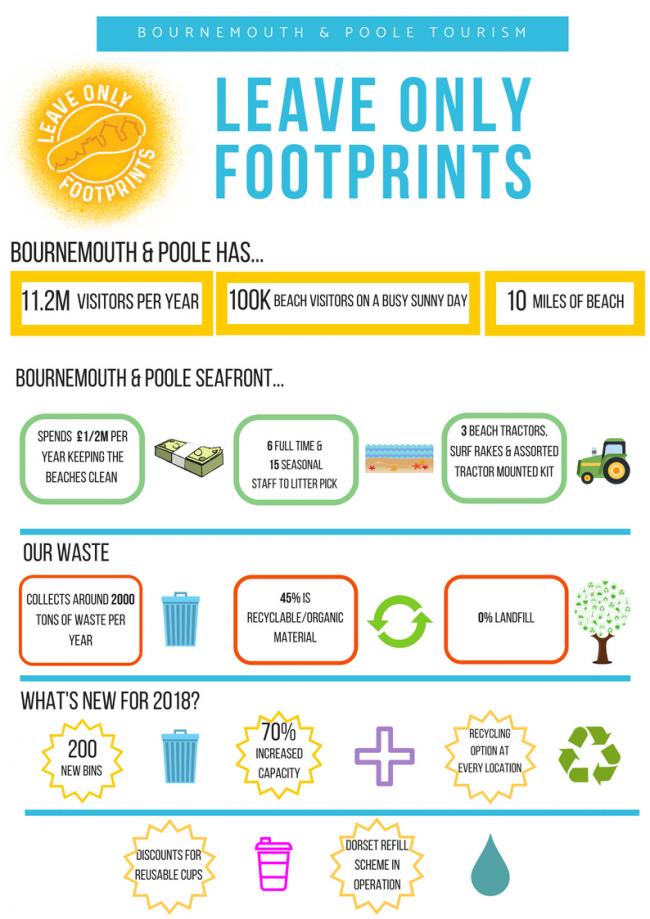VISITORS to Dorset this bank holiday are asked to enjoy the sunshine, eat lots of ice cream and build a sandcastle - before getting rid of their litter when they head home again.
Officials in Bournemouth and Poole have urged all who head to the coastline to drop their rubbish in the bin at the end of the day, or take it away with them if bins are full.
On warm and sunny days, the towns can expect an influx of 100,000 people, many of whom head to the beaches. However, as locals will know, litter is often left behind.
Currently, around 2,000 tonnes of rubbish are collected every year across the conurbation. Councils spend between £1 million and £2m every year clearing the beaches.
Six people are employed full-time in rubbish collection on the seafront. A further 15 people are employed for seasonal work.
This year, Poole and Bournemouth councils will install 200 new bins along the coastline to keep up with demand from visitors.
Recycling bins will also be installed to encourage members of the public to separate out their litter.
There will also be discounts at cafes for those who drink out of reusable cups.

However, concerns were raised about the “filthy conditions” on the seafront and the amount of litter left on the beach.
Bournemouth council officials said several ‘super bins’ were installed at Pier Approach over the winter. The receptacles are partially underground, and hold three to four times as much rubbish as a regular bin.
Seafront Operations Manager for Bournemouth and Poole Tourism, Andrew Brown said: “We’re immensely proud of our beaches here in Bournemouth and, alongside the national awards and accolades that we receive, one of the most rewarding things for us is to see residents and visitors enjoying them. We hope people will choose to spend the bank holiday here and help us to maintain our standards by putting rubbish in the correct bins provided.”





Comments: Our rules
We want our comments to be a lively and valuable part of our community - a place where readers can debate and engage with the most important local issues. The ability to comment on our stories is a privilege, not a right, however, and that privilege may be withdrawn if it is abused or misused.
Please report any comments that break our rules.
Read the rules hereLast Updated:
Report this comment Cancel